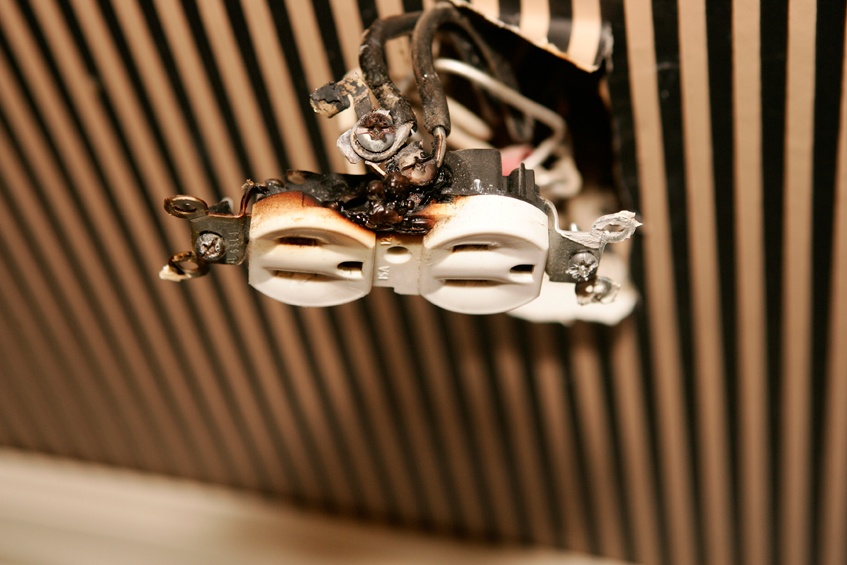There are two types of metal commonly used in wiring: copper and aluminum. They’re chosen for their efficiency, ease of use, and affordability. Each has its advantages and disadvantages and knowing those can help avoid problems that range from annoying to disastrous.
Pros and Cons of Aluminum Wiring
Aluminum wire was used extensively in home and commercial wiring during the late 60’s to late 70s due to a spike in copper prices. It’s still about half the cost of copper, is much lighter, and is more malleable than copper, making it easier to work with. Its lighter weight makes it the best choice when electric current needs to be carried over long distances, such as between power poles.
And properly installed, it’s perfectly safe.
But that’s where trouble can start—when aluminum is used incorrectly.
Aluminum expands when current runs through it and contracts when it doesn’t. That expansion and contraction can cause connections to loosen over time, resulting flickering and dangerous arcing can lead to fires. It can even become hot enough under some conditions to melt certain fixtures, so it’s important to know what types of fixtures and connectors can be used with aluminum wiring.
Aluminum is also more subject to corrosion than copper, meaning its useful life can be shorter as it becomes brittle and subject to breakage.
Pros and Cons of Copper Wiring
Copper conducts electricity better than aluminum, is more durable and less subject to corrosion, and doesn’t expand and contract as much, making many types of connections more secure. On the other hand, it’s heavier and twice as expensive, making it a poor choice for long runs without support.
Why Can’t They Get Along?
Properly joined, aluminum and copper wire can be friends, but mostly due to their different expansion and contraction rates, those connections must be done carefully. Standard wire nuts and screws are not meant for joining copper and aluminum; there are specific connectors, marked Cu-Al, for the purpose and they must be used to avoid trouble.
Because homeowners and DIYers often change or replace outlets, switches, and fixtures, residential contractors commonly use copper except for isolated high-voltage circuits like for stoves, ovens, water heaters, and furnaces. That way the DIYer needn’t be concerned since commonly used devices are designed for copper connections.
If you know, or even suspect, your regular outlets and switches have aluminum wiring running to them, be sure to only use devices specifically rated for copper-to-aluminum connections.
Need Help? Call a Pro
Why risk trouble when help is only a call or click away? Repairs, remodeling, renovations, and additions all need top-notch electrical work, and Allstar Electrical Services delivers the quality results you expect and deserve. We work hand-in-hand with you and your contractors to ensure your project is done right, on budget and on schedule.
We’ve served the Front Range for over 20 years, are top-rated by the BBB and Angie’s List, and are proud to be a Home Advisor Preferred Contractor and member of the Independent Electrical Contractors.
Whatever your electrical needs, call Allstar Electrical at (303) 399-7420 or visit our website. Then use our handy on-line forms to request an estimate or set up an appointment.


